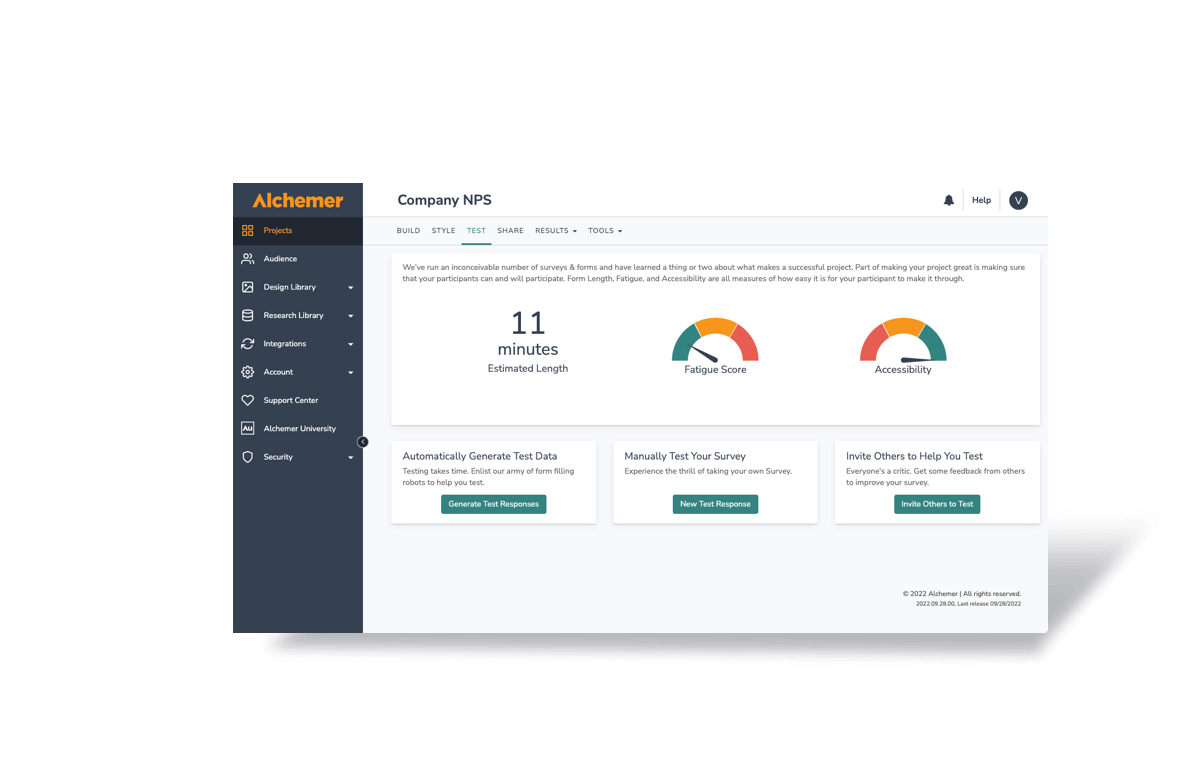According to Benjamin Franklin, “Lost time is never found again,” and that holds true in surveys as well as in life.
We might need confirmation that videos or audio files have been viewed or heard in their entirety, or we might want to disqualify applicants if they take too long to complete an application.
Our survey data can also suffer if we include responses from people who speed through a survey just to get the offered incentive.
Don’t let your surveys be a source of lost time; if your surveys fall into any of these three categories, consider adding a simple timer.
Reason 1: Disqualify Applicants Based on Survey Response Time
If you’re conducting an online test of any kind, a survey timer is a great way to distinguish high quality applicants from those who might be looking answers up online.
For example you could have a job application where applicants need to answer a certain number of questions within a limited amount of time.
When you add a timer to the last page of your survey, you can see if they passed or disqualify them based on their time.
Reason 2: Eliminate Speeders for Cleaner Survey Data
Let’s say that after significant testing you know that your survey takes about five minutes to complete.
If you see someone in your responses who took only two minutes to finish, you know they most likely sped through it and didn’t read carefully. You may want to delete their response altogether so it doesn’t affect your aggregate results, or just exclude it from your reporting.
It’s particularly important to keep an eye out for speeding behavior if you’re offering incentives for completing your survey. You need to take steps to ensure that respondents are giving you the data that you’re “paying” for, and timers are an easy, low-risk way to do that.
Reason 3: Ensure Completion of Video and Audio
Uploading video or audio files can be a great way to increase engagement with your survey, but you want to make sure that respondents see or hear the whole file. Once again, timers can help.
If your video file is takes two minutes and thirty-four seconds to play, but someone only spends 25 seconds on the page, you know they didn’t see the video.
What to Do With Respondents After the Timer
Depending on the goal of your survey and your timer, you may want to setup some restrictions on behavior until the timer is complete.
If you want to force people to stay on a page until a video is done playing, then you’ll need to make sure that they can’t move on until the timer is complete.
For applications or quizzes, you can also have your survey automatically proceed to the next page once time is up. This prevents people from spending too long on a single page (and looking up answers).
3 Ways to Configure a Survey Timer
You can arrange your timer in several different ways to get the best results from your survey:
- Add a timer to a single page: Great if you only have one page where you need to track respondents’ behavior, such as listening to an audio file.
- Add separate timers to each page: This is the way to go if you want the timer to reset each time the respondent moves to a new page of your survey.
- A timer for the entire survey: If all you care about is the time to complete the whole survey, but not the time spent on any individual page, then this timer will do the trick.
The type of survey timer that you use depends on the kinds of questions you’re asking and how you hope people will be interacting with your survey. Think carefully before implementing a timer so you can be sure it’s making your data better without negatively impacting your survey taking experience.
Ready to give it try? Check out our documentation on using survey timers in Alchemer, or start a free trial and see how it works for yourself.




